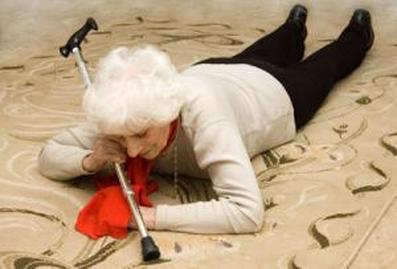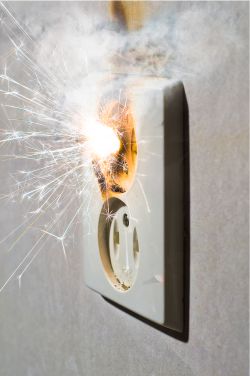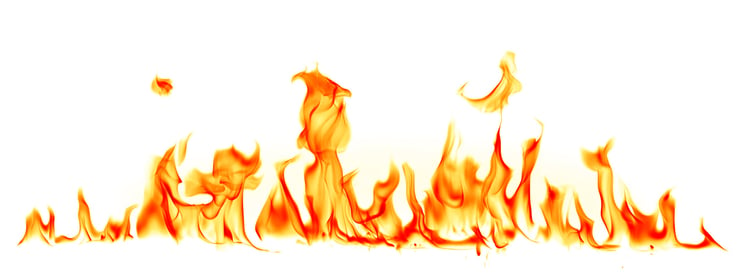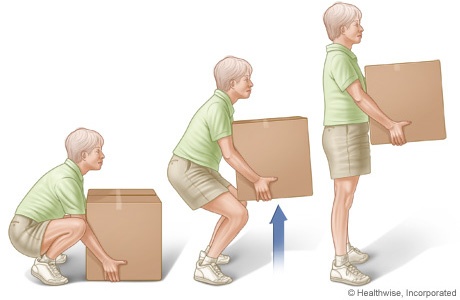Home Care Safety
Please review this list of practices to keep your home safe and free from potential hazards.
Medicines

• If children are in the home, store medications and poisons in childproof containers and out of reach.
• All medicines should be labeled clearly and left in original containers.
• Do not take medicines not prescribed for you or give medicines to others. Read the label, measure doses carefully and know the side effects of the medicines you are taking.
• Throw away outdated medicines by pouring down a sink or flushing down a toilet.
Falls

Falls are the most common and often the most serious accident in the home.
• Arrange furniture to allow for clear paths.
• Install handrails on all stairs, showers, bathtubs and toilets.
• Place rubber mats or grids in showers and bath tubs and use bath benches or shower chairs if you have muscle weakness, shortness of breath or dizziness.
• Wipe up all spilled water, oil or grease immediately.
• Ensure electrical cords and throw rugs are not a tripping hazard.
• Keep drawers and cabinets closed.
• Install good lighting for better visibility. Keep stairs clear and well lit.
Lifting
If it is too big, too heavy or too awkward to move alone – GET HELP.
• Stand close to the load with your feet apart for good balance.
• Bend your knees and “straddle” the load.
• Keep your back as straight as possible while you lift and carry the load.
• Avoid twisting your body when carrying a load.
• Plan ahead and clear your path.
Electrical Accidents
Watch for early warning signs such as overheating, a burning smell, sparks. Unplug the appliance and get it checked right away.
• Keep cords and electrical appliances away from water.
• Do not put cords under rugs, through doorways or near heaters. Check cords for damage before use.
• If you have a broken plug, outlet or wire, get it fixed right away.
• Do not overload outlets with too many plugs. Use three-prong adapters when necessary.
Smell Gas?
• Open windows and doors.
• Shut off the appliance involved.
• Don’t use matches or turn on electrical switches.
• Don’t use telephone as dialing may create electrical sparks. Call the Gas Company from a neighbor’s home.
• If your Gas Company offers free annual inspections, take advantage of them.
Fire

Pre-plan and practice your fire escape. Look for and plan at least two ways out of your home. If your fire exit is through a window, make sure it opens easily. If you are in an apartment, know where the exit stairs are located. Do not use an elevator in a fire emergency. You may notify the fire department ahead of time if you have a disability or special needs.
• Install smoke detectors. They are your best early warning. Test frequently and change the battery every year.
• If there is oxygen in use, place a “No Smoking” sign in plain view of all persons entering the home. Do not allow ashtrays.
• Empty wastebaskets and trashcans regularly. Throw away old newspapers, magazines, and boxes.
• Do not toss matches into wastebaskets unless you know they are out. Wet down first or dump into toilet.
• Have your chimney and fireplace checked frequently. Look for and repair cracks and loose mortar. Keep paper, wood and rugs away from area where sparks could hit them.
• Be careful when using space heaters.
• Follow instructions when using heating pad to avoid serious burns.
• Check your furnace and pipes regularly. If nearby walls or ceilings feel hot, add insulation.
• Keep a fire extinguisher in your home and know how to use it.
If you have a fire or suspect a fire:
1. Take immediate action per your pre-arranged plan. Rescue and escape are your top priorities.
2. Get help on the way without delay. Call 911.
3. If your fire escape is cut off, close the door and seal cracks to hold back the smoke and signal help from the window.



